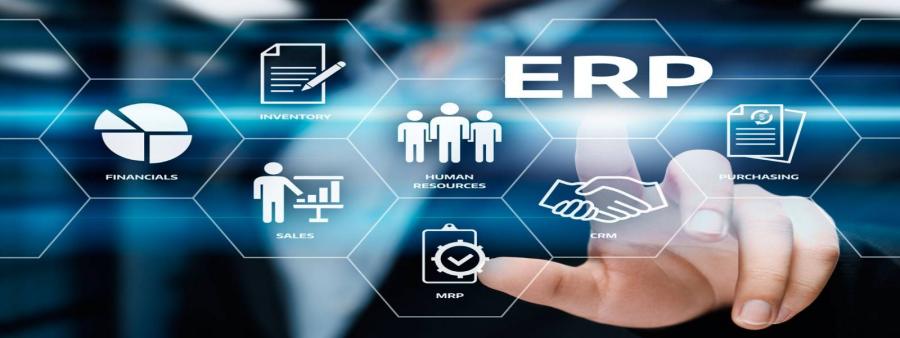ERP in project management | Strategic alliance

Enterprise resource planning (ERP) systems provide a holistic view of the enterprise, enabling managers to make more informed decisions and improve operational efficiency.
In the context of project management, ERP plays a crucial role in providing a unified platform for coordinating all phases of a project. From initial planning to execution and post-project analysis, an ERP integrates key information in real time, facilitating informed decision making.
The 5 benefits of ERP in project management
ERPs offer a number of advantages in project management, including:
-
Reduced project risk and execution time: ERPs can help companies identify and mitigate risks associated with projects. They can also help companies plan and execute projects more efficiently, which can lead to a reduction in execution time.
-
Process Integration and Automation: ERP enables the integration of different business processes into a single system. In the context of project management, this means that activities such as accounting, human resource management, inventory management and project planning can be integrated into a single platform. This reduces duplication of data and improves the consistency and accuracy of information.
Automation reduces manual workload, minimizes errors and speeds up workflows. Routine tasks, such as reporting, invoicing and project tracking, can be automated, freeing up time for more strategic activities. -
Improved Visibility and Control: An ERP provides a centralized, real-time view of all aspects of the project. Project managers can access up-to-date information on project progress, costs, resource availability and other key data. This improves decision making by providing clearer visibility and greater control over all aspects of the project.
-
Resource Optimization: ERP helps optimize resource usage by providing detailed information on resource availability and allocation. This includes the efficient management of personnel, equipment and materials. Resource optimization contributes to greater efficiency in project execution.
-
Data-Driven Decision Making: With real-time data collection and analysis, ERPs facilitate data-driven decision making. Project managers can access detailed reports and predictive analytics that enable them to assess project performance, identify potential problems, and make informed decisions to adjust strategies and improve results.
ERP project management tools and techniques
ERP project management involves the use of various tools and techniques to ensure successful system implementation and business process optimization. Below are some common tools and techniques used in ERP project management:
Tools
-
ERP software: ERP software itself is the central tool in ERP project management. Examples include SAP, Oracle ERP, Microsoft Dynamics, among others. These systems integrate various modules to manage different business functions.
-
Project Planning Tools: Software such as Microsoft Project or Jira is used to plan, allocate resources, track progress and manage project tasks.
-
Collaboration Tools: Platforms such as Microsoft Teams, Slack or Asana facilitate communication and collaboration between project team members, enabling efficient information and file sharing.
-
Change Management Tools: Tools such as Prosci or ChangeScout help manage the organizational change that accompanies the implementation of an ERP system, including staff training and effective communication.
-
Monitoring and Control Tools: Monitoring and control tools, such as Tableau or Power BI, are used to visualize and analyze key data related to ERP implementation, project performance and operational efficiency.
Techniques
-
Gap Analysis: Assess the differences between current business processes and those that will be implemented with the ERP. This helps to identify areas in need of change and customization.
-
Scope Management: Clearly define the scope of the ERP project to avoid deviations and unplanned changes. Effective scope management helps keep the project on time and on budget.
-
Implementation Methodologies: Employ methodologies such as Scrum, Agile or Waterfall to guide the ERP implementation process. The choice of methodology depends on the nature and specific requirements of the project.
-
Training and Development: Implement training programs for personnel who will use the ERP system. This ensures that users understand the new system and can use it effectively.
-
Risk Management: Identify, assess and mitigate risks associated with the ERP implementation. Proactive risk management helps to avoid significant problems during the project.
-
Documentation: Maintain comprehensive documentation of all aspects of the project, including requirements, processes, changes and decisions made. Documentation facilitates ongoing management and future updates.
Successful ERP project management requires the right combination of tools and techniques, as well as careful planning and execution throughout the project lifecycle.
Empowering Success | Training ERP Systems in Project Management
ERPs can be a valuable tool in project management. They provide a centralized platform for planning, tracking and controlling projects, helping companies improve operational efficiency, reduce risks and project execution time by improving visibility, and control project costs.
To take full advantage of the benefits of ERP, it is important to select the right ERP system and have a team of trained professionals.
If you want to deepen in the basics of project management and know in depth the needs of a booming industry, know the programs of La Salle Campus Barcelona. Our university is the only one accredited GAC (Global Accreditation Center) by the PMI (Project Management Institute) in Spain and one of only 8 in Europe with this prestigious accreditation.